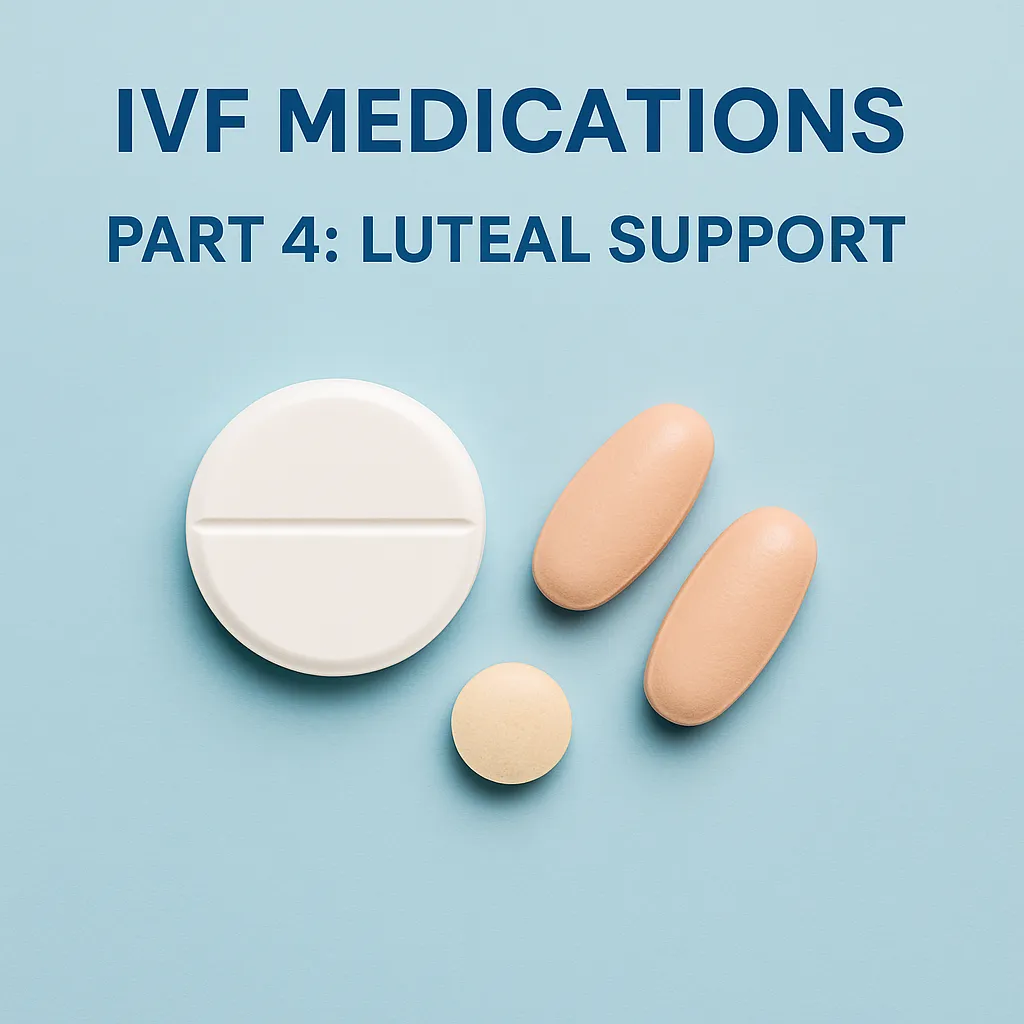
Adjunctive Medications and Supplements in IVF – Beyond the Basics
While standard IVF medications are essential for egg development, ovulation, and implantation, many patients explore adjunctive treatments to improve outcomes — especially after failed cycles or if diagnosed with diminished ovarian reserve, endometriosis, or unexplained infertility. Though some of these therapies are evidence-supported, others remain controversial.
🔹 1. Growth Hormone (GH)
Use: Often prescribed for patients with poor ovarian response or advanced maternal age.
How it works:
Growth hormone may improve the quality of oocytes by influencing IGF-1 (insulin-like growth factor), which supports follicular development and granulosa cell function.
Protocol:
Typically administered during stimulation, often from cycle day 2–6 onward.
Evidence:
Mixed. Some small trials show improved embryo quality and pregnancy rates in poor responders; others show no benefit. Best used in individualized protocols.
🔹 2. DHEA (Dehydroepiandrosterone)
Use: For women with diminished ovarian reserve or high FSH.
How it works:
A weak androgen precursor, DHEA may improve the follicular environment, increase antral follicle count, and enhance response to gonadotropins.
Dosage:
Usually 25 mg three times daily for 6–12 weeks before IVF.
Evidence:
Supported by some meta-analyses for improving AMH, follicle count, and possibly live birth rate in low responders.
🔹 3. CoQ10 (Coenzyme Q10)
Use: To support mitochondrial function and improve egg quality, especially in women over 35.
Mechanism:
Antioxidant that enhances ATP production in oocytes.
Dosage:
Typically 200–600 mg/day for at least 6–8 weeks prior to retrieval.
Evidence:
Emerging studies suggest improved fertilization rates and embryo quality.
🔹 4. Immune Modulators (Prednisone, Intralipids, Lovenox®)
Use: Recurrent implantation failure or suspected immune dysfunction.
Prednisone: Corticosteroid to reduce inflammation
Intralipids: IV fat emulsion that modulates NK cell activity
Lovenox® (Enoxaparin): Low molecular weight heparin to improve uterine blood flow and address clotting disorders
Evidence:
Controversial. Often used in immunological protocols (e.g., for antiphospholipid syndrome), but large studies are lacking. Considered after recurrent loss or failed transfers.
🔹 5. Antibiotics (e.g., Doxycycline)
Use: Pre-transfer, to reduce risk of subclinical uterine infection or endometritis.
Protocol:
Common in frozen embryo transfer (FET) cycles or following hysteroscopy findings.
🔹 6. Supplements and Nutraceuticals
Supplement Purpose Vitamin D Supports endometrial receptivity and immune balance Myo-Inositol Improves egg quality, especially in PCOS patientsOmega-3sAnti-inflammatory, supports implantation Melatonin Antioxidant, may improve sleep and egg quality NAC (N-acetylcysteine)Anti oxidant, used in PCOS or inflammation
Note: Always consult a fertility specialist before adding supplements, as interactions with IVF medications can occur.
⚖️ A Word on Personalization
Many of these adjuncts are chosen case-by-case. While some show promise, others are empirical — meaning they’re used based on clinical experience rather than large randomized trials. Patients should weigh cost, invasiveness, and potential benefit when considering add-ons.